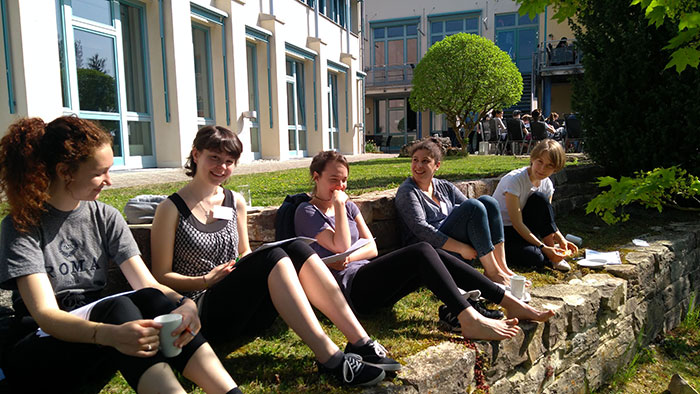After a small afternoon snack, we started the conference with a station run. Thus we could get to know each other, find common ground, assess our prior knowledge of gender research, get a taste of the breadth and complexity of the "gender" issue and express our expectations of the meeting.
Let me briefly explain: What does "gender research" actually mean? Often referred to as "gender studies", this area of research is interested in the meaning of gender for all areas of human life. "Gender", a socio-cultural category, differs from "sex", which is biologically determined. Of course, when discussing differences, cultural influences, and justice in the context of gender in social networks or in pubs, this mostly does not happen in a scientific way. Again and again, then, the charge is that the topic is too polemic, "misused" for campaigns and war declarations or simply should not be an issue.
After dinner, the introductory lecture with the title "Gender Gaga" dealt with this polemic. It was given by Prof. Paula-Irene Villa, Chair of the Department of Sociology and Gender Studies at the LMU Munich, and gave us a meaningful, differentiated and informative introduction to the subject. The numerous questions and discussion topics afterwards showed that this topic is relevant for each of us.
The workshop on medicine and gender with Prof. Sabine Oertelt-Prigione dealt, among other things, with biological differences between men and women, for example with drug therapy and the importance of different dosages and gender sensitive research of the respective drug. The workshop on religious studies with Prof. Susanne Lanwerd examined the role of women in the Bible, taking the story of Judith and Holofernes as an example. The participants discussed different representations and interpretations in history, especially in the visual arts. Prof. Susanne Ihsen’s workshop dealt with engineering and natural sciences. The gender imbalance in these occupations played a major role there.
All in all, we were given a multifaceted insight into the topic of gender research in the short space of just over 24 hours, and we now have a knowledge base on which we are motivated to build even further.
Text: Johanna Burkhardt, Psychology, Würzburg University


